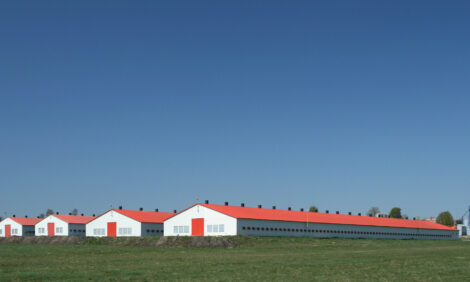



Tension Rises Ahead of Russian/US Poultry Trade Talks
GLOBAL - Top ranking officials from the US and Russia are stating their optimism ahead of talks over poultry meat trade starting next week although widely opposing views are emerging.US Agriculture Secretary, Tom Vilsack, has warned that a Russian ban on US chicken imports could hurt relations between the two countries, reports Moscow Times.
A team of US experts is set to arrive in Moscow on 17 January to discuss the ban, which went into effect on 1 January, Mr Vilsack said.
"Our hope is that they understand the impact this will have generally on our relationship," he said on 9 January in Ireland, according to Moscow Times citing Reuters.
The Federal Consumer Protection Service said a procedure used by US producers for cooling and disinfecting chicken by immersing it in chlorinated water leads to the contamination of the chicken and is dangerous for human health.
Gennady Onishchenko, the Service's head, said yesterday (10 January): "This is not a ban. Treat poultry the way our laws require and nobody will object."
Mr Onishchenko, an outspoken champion of food import bans, signed a decree in June 2008 outlawing the use of chlorine in poultry treatment, but he later pushed back the measure's starting date by a year to 1 January.
He said: "We are paying for [the chicken] and have the right to demand the meat that our country needs." He added that US officials had not started addressing the issue until late last year.
According to Moscow Times, Mr Onishchenko discussed the ban with James Miller, the US Agriculture Department's undersecretary for farm and foreign agricultural services, for one and a half hours late on New Year's Eve, he told Ekho Moskvy radio on 3 January.
Experts arriving to negotiate the ban will also address the fate of poultry already shipped and en route to Russia, Mr Onishchenko said, adding that "reasonable volumes" would be permitted to enter the market.
US poultry producers have argued that there is no scientific evidence that using chlorinated water is unsafe. The ban would "completely halt exports of US poultry meat to Russia", according to a letter sent by the US Poultry and Egg Export Council to Russian authorities in November.
Europe has upheld a ban on US poultry since 1997 because of the chlorine treatment.
Russia is the United States' biggest foreign market for poultry, importing more than 816,000 tonnes of chicken broilers in 2008, or about 26 per cent of all US chicken exports – an $800 million trade.
Russia began importing large quantities of US chicken in the early 1990s, with frozen chicken legs earning the moniker 'Bush legs', in honour of the US president during whose tenure the imports commenced.
The health watchdog has also banned pork from several US producers because of antibiotics used in the meat, concludes the report in Moscow Times.
Mr Vilsack said US research indicates many Russian establishments also used chlorine treatments on poultry and the new regulation was a problem for them too, a view he made clear to Russia's agriculture minister, reports Reuters.
Further Reading
| - | Go to our previous news item on this story by clicking here. |








